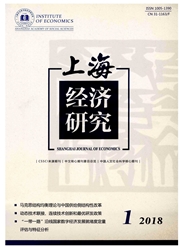

 中文摘要:
中文摘要:
该文利用2005-2014年我国31个省份年度数据,分析了政府过度干预影响商业银行不良贷款率的机理。研究表明:第一,政府过度干预的直接效应是扭曲金融效率,造成信贷资源低效使用,增大信贷回收风险;第二,政府过度干预的间接效应是引致产能过剩,导致企业的效益变差,增大企业信贷违约风险;第三,市场机制在一定程度上能够约束政府过度干预,有助于银行以市场化为导向,提高信贷资产的整体收益,进而对不良贷款产生积极影响。
 英文摘要:
英文摘要:
This paper analyzes the effect of government over-intervention on non-performing loans of commercial banks. In addition, the paper studies the paths of governmental over- intervention by the data of 31 provinces from 2005 to 2014. It is concluded that. First, the direct effect of government over-intervention is the decrease of financial efficiency, leading to the waste of financial resource and the increasing risk of loan~ Second, the indirect effect is the overcapacity lowering profit and repayment capacity; Third, the market mechanism can restrict government intervention to a certain degree, enhance the entire benefits and reduce the non-performing loans.
 同期刊论文项目
同期刊论文项目
 同项目期刊论文
同项目期刊论文
 期刊信息
期刊信息
